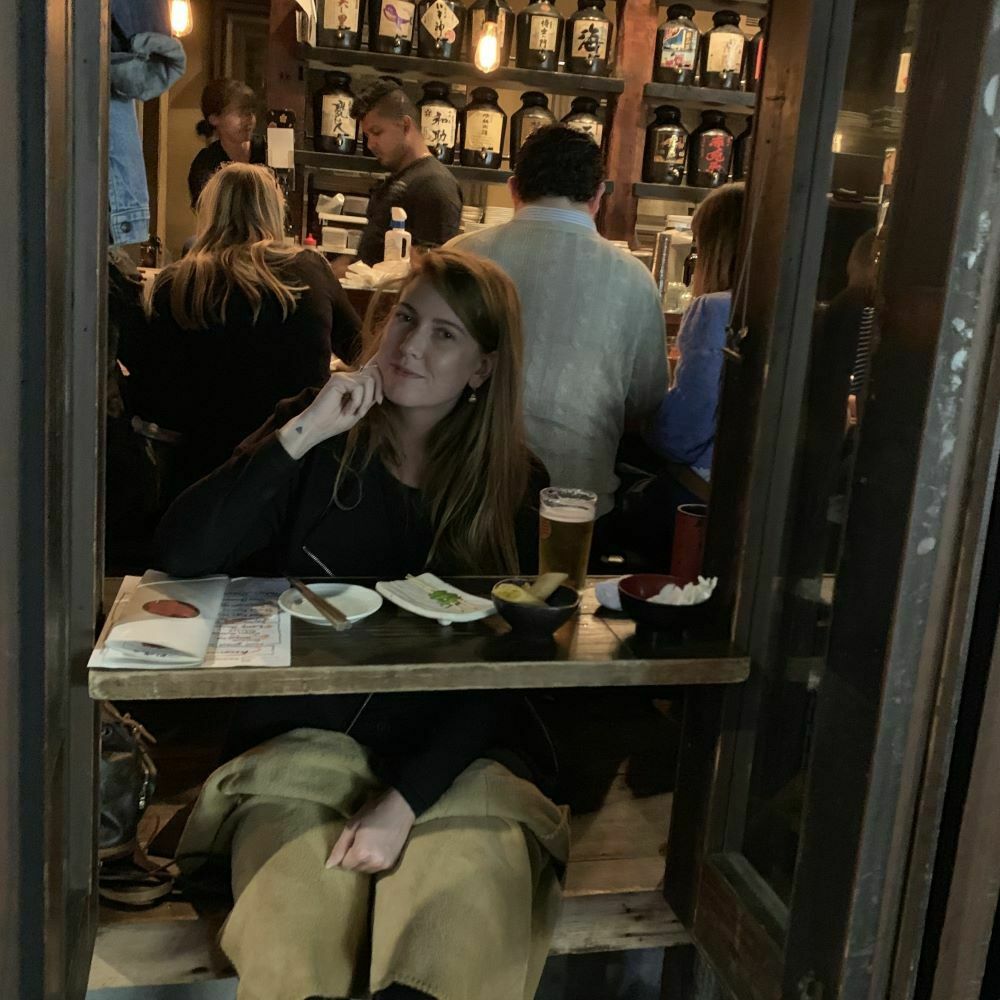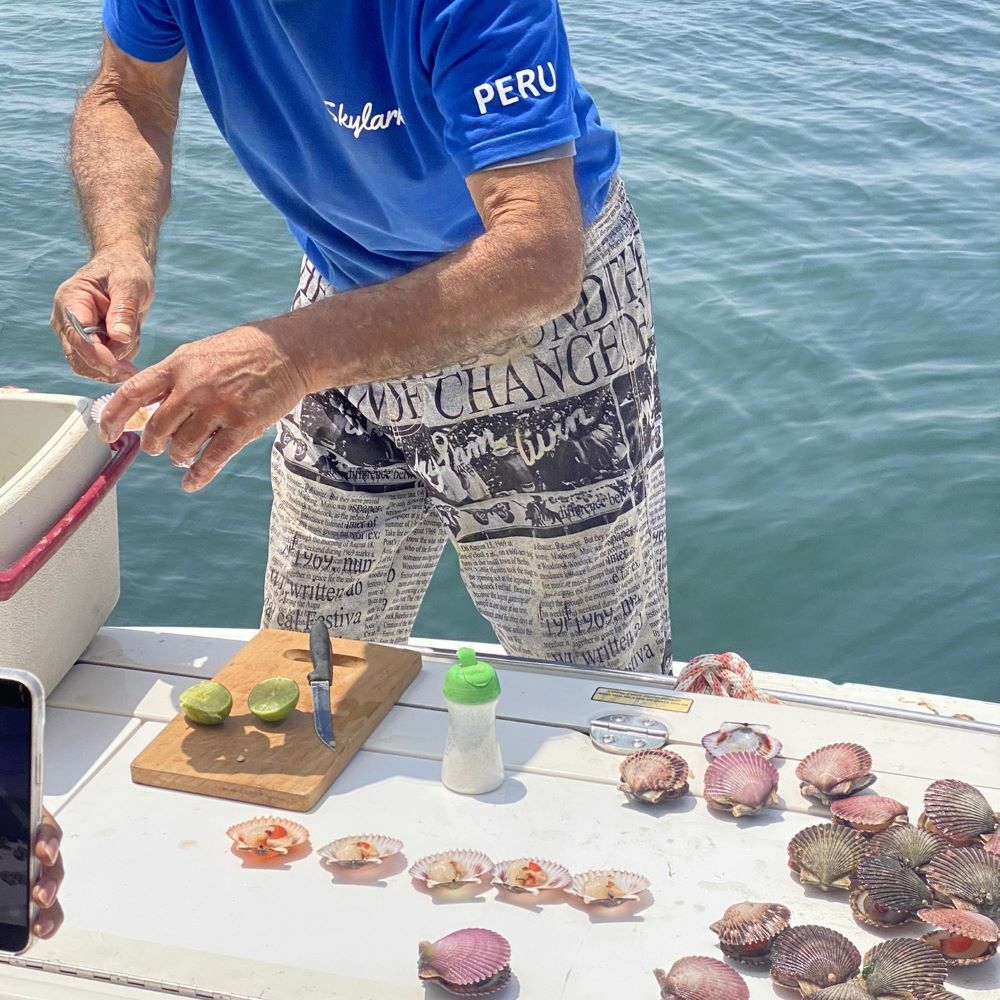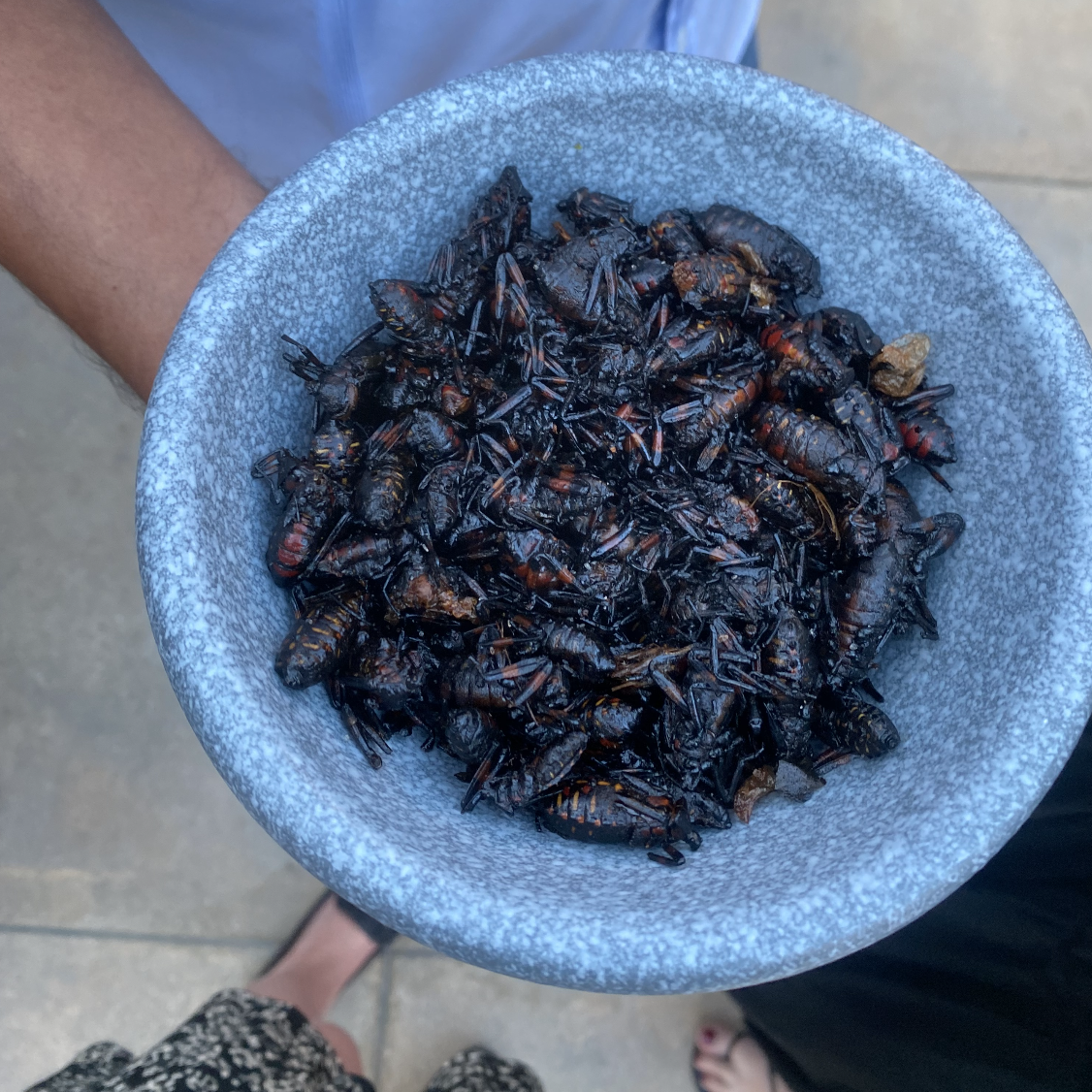Why I stopped stressing about being a 'perfect' vegetarian abroad
I became vegetarian when I was 13 years old, at a tiny country fair just outside of my hometown. I distinctly remember a farmer explaining to me that his cow wasn’t a pet he brought to show off but rather, would be sold to the highest bidder and eventually turned into steak. I decided then and there not to eat meat. That was 17 years ago.
Being a vegetarian in North America—particularly in big cities in Canada and the United States—is easy and doesn’t necessitate a badge of honour or a pat on the back. You can walk into any grocery store and find healthy plant-based alternatives or scan any menu and find at least one or two main courses with a little green plant emoji signifying a vegan-friendly meal. I spent nearly a decade navigating vegetarianism in Atlantic Canada and Montreal and I ate extremely well—but once I started travelling abroad, things began to change.
I’ll never argue that it’s impossible to be a healthy vegetarian or vegan.
I’ve had tofu and cucumber at a Michelin-star sushi restaurant in Kyoto, watching as my partner experienced a shared moment between himself and the sushi chef as he carved into the fresh fish and scallops bought fresh from the Tsukiji Market in Tokyo.
I’ve opted for papas fritas at a steakhouse in Argentina, bland penne pomodoro at a bistro in Paris, and all while accepting questionable glances around the world as I’ve explained what I can and cannot eat. On these global adventures, more often than not, I’ve selected something far less satisfying than the traditional meals my omnivorous travel buddies were enjoying.
Although I considered myself a foodie and adventurous eater, it never really bothered me that I couldn’t experience culture through food in the same way as others could. I was by default a vegetarian and that just came with sacrifices.
But as I began to travel more, I started to look and feel unwell. I was forced to take a hard look at my diet and reconsider.
I’ll never argue that it’s impossible to be a healthy vegetarian or vegan. I don’t believe that to be true at all. I know plenty of vibrant, plant-based eaters back home in Montreal who have the time and resources to track every vitamin and mineral to ensure they’ve got their bases covered. That becomes tricky when you are travelling more than you are grocery shopping at home where shops commonly cater to others with the same dietary restrictions. With my health in mind after being strictly plant-based for more than 15 years, I decided to slowly start adding fish into my diet when travelling. For the most part, I don’t regret my decision whatsoever.
I started by adding bivalves like scallops, mussels, and oysters into my diet. I figured they didn’t have eyes and the jury is out on whether or not they feel pain. It felt like a pretty safe bet.
But while eating fresh scallops off the side of a fisherman’s boat in Peru, I found out that scallops actually have dozens of little eyes dotting their shells. So my plan to be an ethical fish-eating vegetarian kind of went out the window.
I could have decided then and there to revert back to being strictly plant-based but I had already experienced a taste of what it was like to be a normal-ish eater while abroad.I decided to give pescetarianism a fair shot.
I can’t recall the first time I had fish, like, fish-fish, when travelling. It didn’t necessarily mark me—but it snowballed. Eating fish became like an understanding handshake between me and my hosts around the world, a breath of relief that meant we had something in common and I wasn’t just a lettuce-eating vegetarian.
People liked me better. I experienced food culture more vividly than I did when I was a strict vegetarian. And I felt better. My skin looked brighter, I felt like I had more energy while globe-trotting through a period of a lot of travel in South America and Europe, and I felt that I was objectively healthier. Though I made the change for health reasons, being included in traditional cuisine has had a much bigger impact on me as a traveller than I had imagined it would.
I still don’t eat meat and I don’t see myself ever deciding to roll back my vegetarianism that aggressively—but I no longer fear cross-contamination when travelling. Living a plant-based lifestyle is a privilege (one that’s easy to practice when you’re a homebody in a big North American city) but, if I’m being honest, it’s somewhat selfish to try to maintain strict standards when travelling abroad. It’s a privilege that I don’t believe one should force others to accommodate while abroad—especially if you consider yourself to be a good global citizen.
While some vegans and vegetarians would disagree with me, I would still prefer to make my hosts comfortable rather than chase some kind of martyr.
I used to think Anthony Bourdain’s dislike of vegetarians was exaggerated but I actually kind of get it now. Expecting anybody to cater to your personal preferences, especially in another country where it might be hard to gain access to fresh vegetables or where meat is a tool for survival, is not moving the needle far enough toward animal liberation for it to be worth it.
I still call myself a vegetarian although technically I’d be labelled as a pescatarian. Sometimes though, I feel like using strict labels is childish and unrealistic. Why can’t I eat mostly plants at home but indulge in a bone broth-based soup while in Tokyo if that’s what the locals are eating and what would make the fewest waves when I’m a guest in another country?
While some vegans and vegetarians would disagree with me, I would still prefer to make my hosts comfortable rather than chase some kind of martyr medal granted only to those who are perfect plant-based eaters no matter the cost.
I would rather enjoy my Turkish-speaking mother-in-law’s rice than grill her about whether or not there’s chicken bouillon in it, doing nothing but making her feel bad and me go hungry. I would rather not ask for a rundown of every single ingredient in the umami-packed soup being served to me in Japan. And there’s no way I’ll ever struggle my way through another conversation in Spanish, trying to get the street food vendor in Mexico City to cook my torta on a freshly-cleaned grill to avoid meat cross-contamination.
While it’s true that finding vegetarian culture around the world (I still say meat-free McDonald’s in India is my church) is a treat, I don’t believe that vegetarians have the right to expect the world to cater to them. Maybe that makes me a bad vegetarian but I like to think it makes me a more well-rounded global citizen who can experience a deeper level of cultural connection and more comfortable dinner conversations than I once could. And if that means sometimes turning a blind eye to some of the ingredients on my plate, I’m willing to make the sacrifice.
Issue 5






